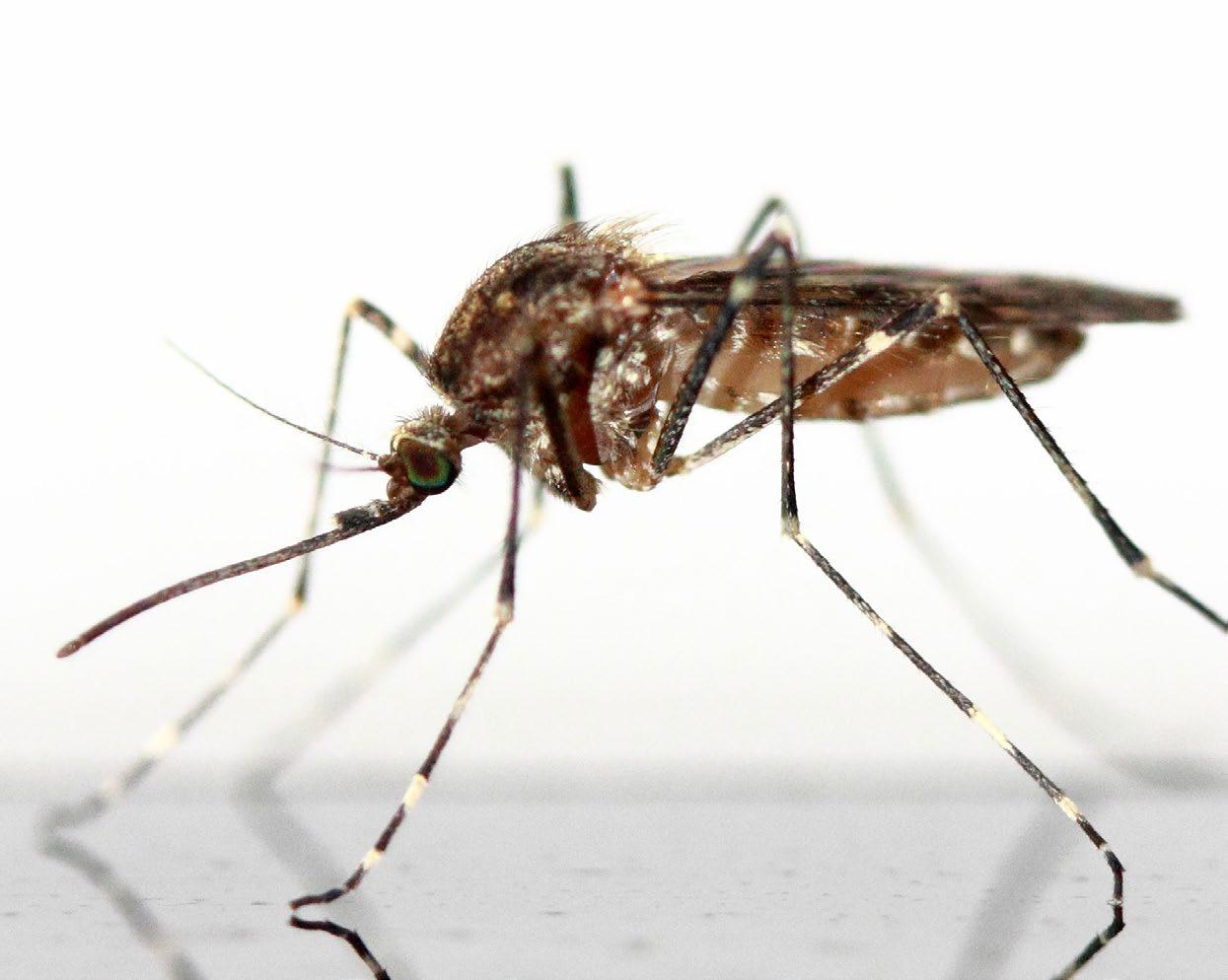
4 minute read
Research
New design of metamaterials
Metamaterials have properties that depend on their shape and architecture. Physicists Anne Meeussen and Martin van Hecke, together with colleagues at Tel Aviv University, have found a new way of designing these metamaterials and their properties by deliberately incorporating small errors. Applications for this discovery range from shoe soles and prostheses to soft robots.
Barcodes for folded molecules

Alireza Mashaghi’s team at drug institute LACDR found a way to determine and classify the shape of proteins. They use simple and precise barcodes, which allow all types of protein folds to be identified. Mashagi: ‘This barcode, which can be seen as a protein fingerprint, allows for more detailed research into diseases caused by misfolded proteins, such as neuromuscular diseases and some cancers.’

Asteroids to hit Earth?
The discovery that eleven asteroids might collide with our Earth in the future became world news. The research by John Hefele, Francesco Bortolussi and Simon Portegies Zwart has appeared on more than 200 news sites worldwide, from Mexico to Vietnam. They developed and trained an artificial neural network for this discovery. Luckily for us, the first potential collision is not until 2131.
Plant longevity gene discovered

Harvesting rice from the same field over and over, without sowing new rice plants? Omid Karami’s discovery may bring this scenario closer: the biologist discovered a gene that allows annual plants to continue to grow after flowering, instead of dying. This discovery earned Karami the first Krijn Rietveld Memorial Innovation Award, sponsored by Royal DSM.

Disease-transmitting mosquitoes
The changes that humans are making to the landscape are beneficial for mosquitoes that spread diseases such as Zika, chikungunya and dengue. That’s what environmental scientist Maarten Schrama and colleagues wrote in Nature Scientific Reports. ‘If we know where mosquitoes thrive best, we can design our own living environment in a way that limits the risk of mosquito-borne diseases.’
Networks-on-chips

Networks-on-chips are hardware that enable communication between different parts of a microchip. They have been around for over twenty years, but they are still not used widely because they consume too much power. During his PhD research, computer scientist Peng Wang found a solution for this power inefficiency.

Testing vaccines without lab animals
Laboratory animals are still frequently used to test the quality of vaccines. But drug researchers Thomas Michiels, Wim Jiskoot and Gideon Kersten, together with vaccinology institute Intravacc, are developing a new test method that makes animal testing unnecessary. A change in the degradation rate of the vaccine should indicate whether it has been successfully inactivated or defused.
SAILS takes Artificial Intelligence to the next level

Society artificial intelligence and Life Sciences, or SAILS, is a new University-wide initiative that looks to build on and expand the current expertise on artificial intelligence within Leiden University. Computer scientist Joost Batenburg joined the initiative this year as SAILS professor.
AI is everywhere
‘Artificial intelligence (AI) – the use of computer systems that can perform intelligent tasks and decision-making – is all around us, ’ says Professor Batenburg, who is also the new Programme Director of SAILS. ‘AI is used in hospitals and in industry, but you can also find it at our Faculty. For example, our pharmacologists use AI to make the search for medicines more efficient.’
Platform for collaboration
Batenburg and his SAILS colleagues will focus on creating and strengthening active and vibrant research collaborations across the faculties of the University. ‘I aim to use the advances in the field of AI as a powerful platform for interdisciplinary research collaboration, linking the available domain expertise with machine intelligence.’
Strong AI cluster
If there’s one thing we can be sure of, it’s that AI is going to become more important as time goes on, says the SAILS professor. ‘Fortunately, we make up a strong AI cluster in South Holland, together with Delft and Rotterdam, the university medical centres and, of course, the business community. Another plus is that Leiden Professor Holger Hoos is the founder of CLAIRE, the organisation that brings AI in Europe together. So we’re going strong here in Leiden!’
© Tom Langelaar

World champions
The students from iGEM Leiden have won the Grand Prize at the iGEM international biology competition. They impressed the judges with Rapidemic, a test kit to detect infectious diseases such as Covid-19 at an early stage. The kit is easy to produce and can be adapted quickly to different pathogens, which can help prevent future pandemics.





